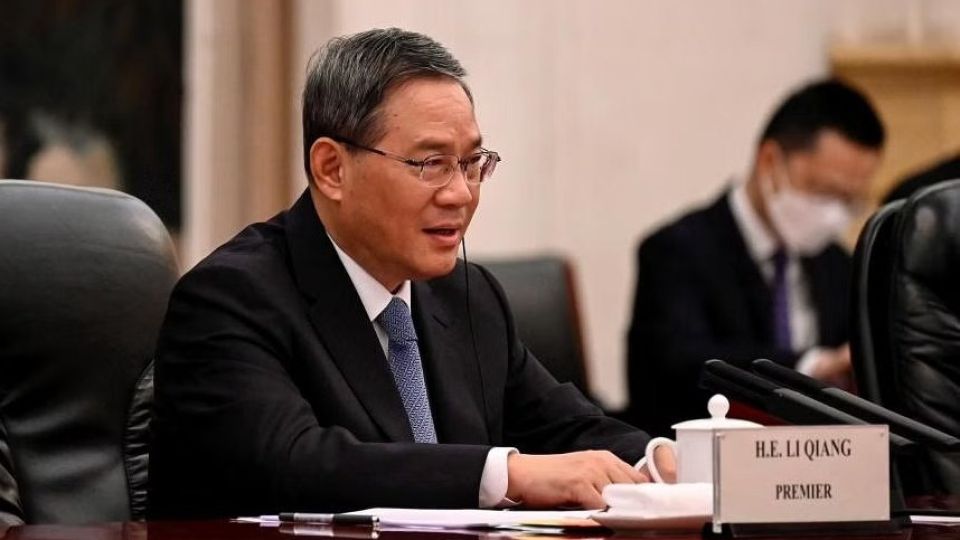January 22, 2024
SINGAPORE – In his special address at the opening ceremony of the World Economic Forum in Davos, Chinese Premier Li Qiang went big on his country’s wish to enhance global cooperation in the economic field.
But for many in the audience, the No. 2 in command of the world’s second-largest economy would need to follow up with more details on how Beijing plans to achieve that goal. They said they wished to see deeper reforms and new policies that would support, for example, the ease of doing business in China.
Government officials, business leaders, experts and observers filled the Congress hall on Jan 16 for Mr Li’s speech, his first as China’s premier at the annual gathering in the Swiss town.
They hoped to get a glimpse of the real state of China’s economy and its prospects, following lacklustre economic growth after the Covid-19 pandemic.
Their concerns: problems in China’s property sector, slower export activity, youth unemployment, limited domestic demand and a changing demographic profile due to an ageing society.
Expectations were running high ahead of the meeting after China announced that Mr Li would be leading the delegation for the gathering. American news site Politico said the size of his delegation – he was reportedly accompanied by 10 state ministers – caused a bit of buzz in Washington, which sent US Secretary of State Antony Blinken and National Security Adviser Jake Sullivan to Davos.
Others said Mr Li’s entourage of 140 people was the biggest since 2017, when President Xi Jinping led more than 80 Chinese business leaders to the Forum.
But size apart, it was the timing of Mr Li’s address that mattered.
His visit comes at a time when the world is still caught up in a relatively slow-moving global economy, continuing conflicts in two hot spots, and dismal gains in dealing with the consequences of climate change.
There are other risks as well, such as misinformation at a time of elections in several countries.
Mr Li, in his address, attempted to assure the world of China’s growth trajectory, which he said was “making steady progress” on “sound and solid fundamentals”.
The Chinese economy, which grew 5.2 per cent in 2023 – higher than the official target of around 5 per cent – will “continue to provide strong impetus for the world economy”, he added.
“Choosing the Chinese market is not a risk, but an opportunity,” he told the audience.
Illustrating China’s potential in demand and infrastructure development, he noted that the number of people in the middle-income group will double to 800 million in the next 10 years or so, from around 400 million now.
China’s rate of urbanisation is more than 10 percentage points lower than those in the developed world, so there is considerable room for development in areas such as transportation and telecommunication.
Mr Li reaffirmed China’s commitment to further opening its economy and fostering a market-oriented and law-based business environment for international cooperation.
Dr Gary Hufbauer, a senior fellow at the Peterson Institute for International Economics, told news network Voice of America that Mr Li’s speech was generally positive, but it did not touch on any specific actions that Beijing would take to attract Western companies.
“It did not have anything that I would call ‘concrete measures’ that would really appeal to the business community. So they will be more sceptical,” he said.
A China watcher from Germany who advises companies told The Straits Times it would have been useful if the Mr Li had reassured foreign companies that are still operating in the country – despite geopolitical shifts – that China would support them as the policy landscape within the country evolves.
The observer, who requested anonymity, also said she was hoping for Mr Li to address issues such as how China plans to move forward with an ageing population, as well as deal with youth unemployment.
Spanish-German wind engineering company Siemens Gamesa’s chief executive, Dr Jochen Eickholt, told ST that he wished Mr Li had elaborated more on green technology.
Entrepreneur Loubna Bouarfa said she is happy to see that the Chinese Premier’s perspective is aligned with Europe’s in terms of values – that artificial intelligence (AI) should be for all and inclusive. But she would like to see how Beijing’s view on data evolves.
A paper on the Chinese AI advantage by business school IMD notes that, with more than 700 million Internet users, China has a clear advantage in data volume that can be used to train AI-learning algorithms.
“The devil is in the details,” said Dr Bouarfa.
On Jan 17, at a session on reigniting growth in China, Australian Ambassador to the United States Kevin Rudd said the key question for China’s future would be “the restoration of Chinese domestic consumer confidence”.
“Because that is China’s best long-term guarantee, and it lies at the heart of Chinese economic policy,” he said.
Mr Rudd suggested that Beijing should look at wage policy, tax policy and welfare measures to rekindle consumer confidence.
He said Chinese business confidence needs to be addressed and that Mr Xi’s administration needs to “de-emphasise ideology and re-emphasise the core question of the normal profit incentives for businesses operating in a market economy”.
The former prime minister of Australia also warned that geopolitics could “pull the floor” from underneath China’s growth model, if the current state of ties between the US and China deteriorates.
Still, in a reflection that China continues to hold their interest, hundreds of business delegates and officials showed up on Jan 16 for a “Dalian Night” reception at the Congress Centre, where guests were treated to a cultural performance and gourmet cuisine from Dalian, a city in the north-eastern province of Liaoning.
Dalian will host the Summer Davos meeting for China watchers and potential investors later in 2024.


